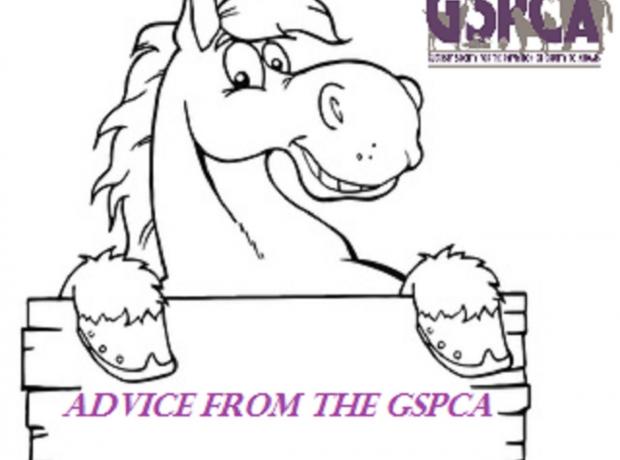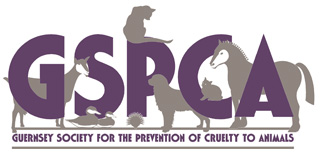- Home
- About
- 24 hour Emergency Wardens
- Animal Welfare
- Animal friendly hotels
- Awards & Recognition
- Corporate and group days
- Dog Fouling
- Dog Friendly Pubs
- Dogs Barking
- GSPCA Committee
- GSPCA Membership, Rules, News and Accounts
- GSPCA Opening & Visiting Times
- Gert the GSPCA Duck - Fun for kids
- Guernsey Animal Law
- Guernsey Dog Tax Law
- Our Team
- Privacy Policy and Cookies Policy
- Restrictions on Beaches in Guernsey
- St Andrews Floral Group & Conservation Work
- Stray Cockerels & Hens
- Surveys
- Terms & Conditions
- Transporting animals in and out of Guernsey
- Vacancies
- Volunteers
- Services
- Adoption costs at the GSPCA
- Birthday or Special Guided Tours at the GSPCA
- Boarding Facilities
- Cat Adoption
- Choosing a Puppy
- Comments & Feedback
- Dog Adoption
- Dog Behaviour
- Dog Training
- Education and Schools
- Fostering Scheme
- Lost & Found Advice
- Microchipping only £4.99 & advice
- Pet Bereavement Advice Page
- Pet Cremation Services
- Pet supplies and products on sale
- Room hire at the GSPCA
- Training & Courses
- Vote for a staff member or volunteer
- Animals
- Gallery
- Support Us
- Shop
- Blog
- Links
- Contact
Submitted by Steve on 14:57, 24th Apr, 2017 |
0

In Guernsey a case of Strangles has recently been identified and the GSPCA are asking all equine owners to take care to ensure their animals are kept safe and well.
Strangles is a commonly diagnosed infectious disease that affects all equidae worldwide. Caused by the bacterium Streptococcus equi.
The disease is highly contagious and is spread by direct or indirect contact. It can affect any age, sex or breed of horse and remains a widely feared disease because of its debilitating effects and its potential economic impact on equestrian businesses.
The severity and number of clinical signs exhibited can vary between individual horses. Young, elderly and debilitated horses are often most susceptible but it is important to remember all horses are at risk. Clinical signs are not usually seen until 3-14 days after the horse has been in contact with the bacterium.
Clinical signs include:
• Depression and dullness
• Loss of appetite
• Nasal discharge
• Development of a cough
• High temperature
• Swelling of the lymph nodes (glands) under the jaw or on the head or neck which can lead to abscess formation at a later stage
Any owners with any concerns should contact their vet as soon as possible for advice and for all vet details in Guernsey you can see them on our links page - http://gspca.org.gg/links
Strangles can be spread easily by direct contact between horses or indirectly by handlers, equipment or contamination of the environment. This can lead to large outbreaks with many horses becoming infected if strict biosecurity measures are not put in place and adhered to. For example, the infection can be spread:
• by nose to nose contact between horses
• via equipment shared with infected horses, such as:
• water troughs where the bacterium can survive for long periods
• feed buckets
• grooming equipment
• tack
The mixing of horses from different areas, such as when at a show and new arrivals to a yard, increases the risk of disease being spread. Outwardly healthy horses are often overlooked as not being a risk but it is important to remember:
• A horse may be infected but not yet showing any clinical signs
• A horse may have atypical strangles
• Carriers can intermittently shed the bacteria for months or years
• Horses not yet fully recovered from the disease can still shed the bacteria
All infected or suspect horses should be isolated immediately, including any other horse(s) they have been in contact with. Isolation plays an important role in preventing further disease spread.
It is important for yard owners to implement a strict isolation procedure for new arrivals to the yard and owners are also advised to prepare a biosecurity management plan in the event of an outbreak. A strangles outbreak can last for many months on premises with inadequate isolation procedures causing continued welfare problems and disruption to the yard.
The Premium Assured Strangles Scheme (PASS), launched by SAC Consulting Veterinary Services, aims to protect horses and yards from strangles infection, reduce disease in local areas, and provide a national control programme with health status certification. All horses on member yards are blood tested on joining the scheme, plus new horses coming to the yard and any potential carriers are identified and treated. For further information please visit www.equinehealthscheme.com.
Strict hygiene and biosecurity plays a vital role in the prevention, control and spread of the disease.
• Disinfecting all food and water containers, clothing, stabling and equipment used by an infected horse is imperative.
• If transporting horses it is good practice to disinfect the horseboxes used before and after collecting any new horses.
• Quarantining new arrivals to a yard is the most effective way to prevent a strangles outbreak.
• Quarantine means no direct or indirect contact between a new horse and other animals, or equipment used by other horses.
• A quarantine period should be a minimum of two weeks. Horses assessed as high risk are advised to be kept isolated for three weeks.
• Horses that appear to be disease-free after this quarantine period only pose a risk if they are a carrier. The blood test will help to detect a carrier status of a horse.
• A vaccine for strangles is available.
Steve Byrne GSPCA Manager “Some of the GSPCA team care for and own horses and with an estimated 800 in Guernsey it is important all equine owners take care after the recent case of Strangles.”
“With any animal with a health issue it is extremely important to contact your veterinary surgeon as soon as possible if you have a concern.”
"Any affected horse owners need to please take advice from their vets to help their horses and advise and horse owners in the near by area to help prevent the risk of Strangles spreading."
To donate to the many animals in our care please visit
The GSPCA are very proud to announce that we have been awarded the Guernsey Community Foundation Charity of the Year.
There are so many amazing organisations, groups and individuals and to recognise these there are a number of upcoming awards. Could you nominate the GSPCA, one of our team or another worthy individual or cause? Please visit the links below
Nominating a group for The Queen's Award for Voluntary Service, please visit - https://qavs.direct.gov.uk
Could you write us a review on the Best of Guernsey who run awards each year, if you could please visit - https://www.thebestof.co.uk/local/guernsey/business-guide/feature/gspca
To donate via giving.gg to help animals at the GSPCA please click here
Create your own user feedback survey
To see all of our events, links and fund raisers please click here
If you would like to fund raise or help the GSPCA please contact the GSPCA on 01481 257261 or email [email protected]
To complete our local Guernsey microchip survey -
Create your own user feedback survey
To see all of our events, links and fund raisers please click here
Looking for pet insurance in Guernsey? Check out the GSPCA pet insurance with Rossborough http://www.rossboroughpetinsurance.co.uk
Posted by GSPCA on Tuesday, 30 June 2015
To find out about our Build Partner programme please click here
To find out how to volunteer for the GSPCA please click here
To find out about guided tours at the GSPCA please click here
Have you got a GSPCA Hoody, Polo Shirt, Sweat Shirt or T-shirt? If not get yours by clicking here.
To find out about our Events, how to become a Member, Sponsor an Animal Pen, our Wish List, Corporate Sponsorship & Volunteering, , our New Build & Redevelopment Appeal and much more please click here.
There are many ways to support the work of the GSPCA and you can even donate online by clicking the paypal link below.

By post cheques payable to 'GSPCA' - GSPCA, Rue des Truchots, St Andrews, Guernsey, GY6 8UD
Or by phone 01481 257261.
To find out more regarding our Angel Sponsorship Scheme please click here.
Have you liked us on facebook yet or joined us on twitter?
Here is the latest from the GSPCA Twitter feed -
To see a page full of items on our GSPCA Wish List please click here.
To donate online to help the GSPCA please visit - https://giving.gg/donate/charity/2/Guernsey-Society-for-the-Prevention-of-Cruelty-to-A







